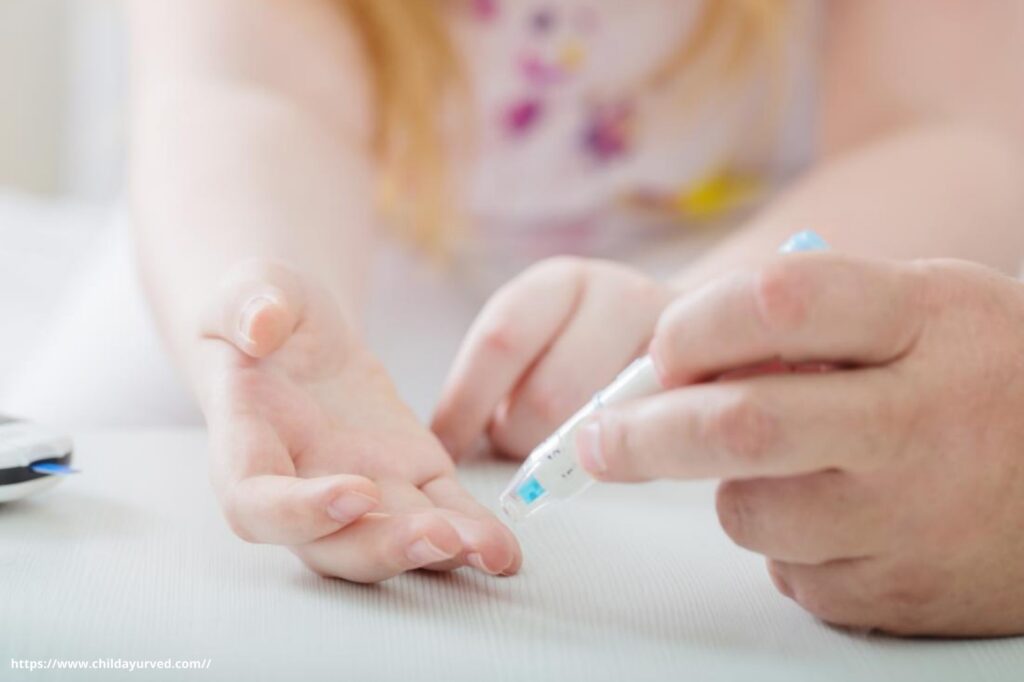Diabetes in children is on the rise these days. However, children and youth can benefit from early diagnosis and care throughout their lives. It helps in improving their health and well-being as well.
Young adults who have diabetes are at a greater risk of developing health problems later in life.
If you are from the Ghaziabad area and your child faces some issues related to diabetes, you can visit your diabetologist in Ghaziabad for quality treatment.
Which forms of diabetes are more common in teenagers?
Type 1 and type 2 diabetes are two related diseases that influence how the body uses insulin. While type 1 is more common in children and adolescents, both forms can affect them.
Type 1 diabetes
Type 1 diabetes is a type of diabetes in which your body fails to produce an adequate amount of insulin. It is the malfunction of your pancreas. Type 1 diabetes, also known as juvenile diabetes, develops in children.
Sugar absorbed from food cannot migrate from the blood into the cells without insulin, resulting in elevated blood sugar levels.
Type 1 diabetes can strike at any age, from infancy to adulthood, although the average age of diagnosis is 13 years. According to various researches, people under the age of 20 account for 85 percent of all type 1 diagnoses.
Treatment for type 1 blood sugar includes lifetime insulin utilization, blood sugar control medications, proper diet, and exercise management.
Diabetes type 2
Type 2 diabetes is less common in children under 18, although it can happen if insulin is not functioning correctly. Glucose will build up in the bloodstream if there is not enough insulin.
Type 2 diabetes is more likely to occur as people grow older, but it may still strike infants.
Type 2 diabetes rates are rising together with increasing childhood obesity rates. Obesity affects numerous children these days. The consumption of various fast foods and junk foods, overindulgence in video games, not having any physical activity are the main reasons for obesity.
About 75% of children with type 2 diabetes have a parent who also has the disease, either because of inheritance or shared lifestyle patterns. If you have a diabetic parent or sibling, you are at higher risk of developing type 2 diabetes.
People with type 2 diabetes, other than the medicines, can also treat their condition by:
- A change of diet
- Increasing the physical activity
- Maintaining a healthy weight
Symptoms of diabetes in Children:
Diabetes signs are the same in infants, adolescents, and adults. Some symptoms are similar in all forms of diabetes, but some distinctions can help distinguish them.
Diabetes Type 1
The below are the most common signs of type 1 diabetes in children and adolescents:
- Increased urination and thirst
- Excessive hunger
- Rapid weight loss
- exhaustion
- Irritation and change in mood and behaviour
- The fruity aroma in the child’s breath
- Vision problems
At the time of diagnosis, few individuals can suffer from diabetic ketoacidosis (DKA). Due to a lack of insulin, the body continues to use fat for energy. It is a dangerous illness that necessitates medical attention.
Knowing the four major signs of type 1 diabetes, you may get a diagnosis before DKA progresses.
Toilet: The child may require frequent urination, children may need to wear heavier diapers, or bedwetting may occur after a period of becoming dry.
Thirsty: The infant may be drinking more water than usual, but they require that.
Tired: It is possible that the kid is more tired than average.
Thinner: The kid may be gaining weight.
Diabetes type 2
The following are the most common signs of type 2 diabetes:
- Urinating more frequently, especially at night
- Increased thirst
- Exhaustion
- Sudden weight loss
- Itching in the genital region, probably caused by a yeast infection
- Cuts and bruises heal slowly
- Dryness in the eyes and blurred vision
- The appearance of thick, velvety patches of skin, known as acanthosis nigricans, is another sign of insulin resistance.
- Polycystic ovary syndrome (PCOS) is another disorder that is often linked to insulin resistance, though it is not a symptom of it.
When parents can notice either of the signs mentioned above, they should take their child to the best diabetologist in Ghaziabad.


